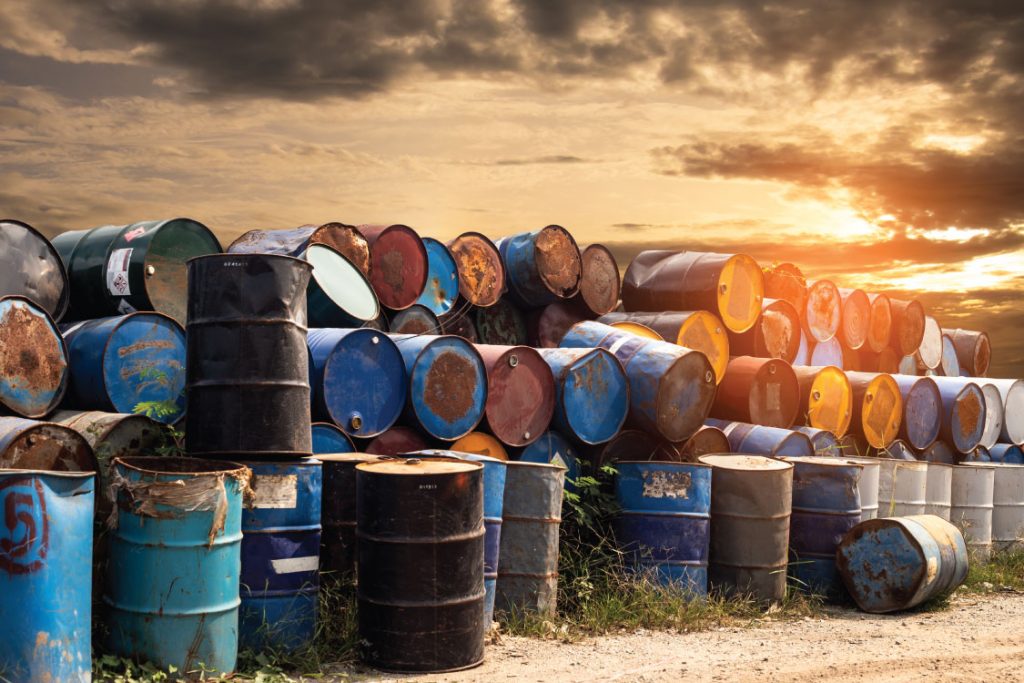Types of Hazardous Waste
Safe and responsible disposal of all kinds of waste is a key consideration for licensed operators such as CSH Environmental. That’s especially the case when it comes to disposing of hazardous waste, which could otherwise pose a serious risk to humans, animals and/or the environment.
But what exactly is classified as hazardous waste? There are several main categories that you need to be aware of, which are listed below. Incidentally, there are many hazardous items that fall into more than one of the following categories – an obvious example is petrol, which represents both a flammable and a toxic hazard.

Flammable waste
Many things can catch fire, but in terms of hazardous waste, flammable items may only need the smallest spark to light and once they are they can spread very quickly. Flammable waste materials may also give off dangerous fumes that would be harmful if inhaled, making them doubly dangerous to be exposed to. Examples of flammable waste include petrol, diesel, lighter fuel, lamp oil, paint thinner, methylated spirits and ethanol.
Some flammable items can even ignite spontaneously or under pressure. That makes storing and transporting flammable waste properly absolutely vital – you need to be particularly mindful of the packaging you use, so that any issues can be safely contained should the worst happen.
Explosive waste
When you think of explosive hazards, your mind inevitably turns to the obvious ones, such as fireworks, ammunition and actual explosives. However, compressed gas containers and cylinders also carry a high risk of exploding when subject to high heat or crushing. There is also the risk of further fires as a result of such an explosion, depending on the nature of the gas that is being compressed. As a key ingredient of any fire, oxygen is a gas that can be particularly dangerous in this regard.
Toxic waste
Toxic waste comprises material that can poison humans, animals and/or the environment. That’s actually covering quite a broad swathe of domestic and commercial items and products. In the home, it’s going to include a lot of your cleaning solutions and solvents, along with liquid paint, turpentine, white spirit, antifreeze, weedkiller, pesticide and drain cleaners.
Although only containing small amounts of mercury, which can cause severe damage to many of our vital organs, that small amount makes fluorescent tubes another particularly toxic domestic item that needs to be treated as hazardous.
One of the most dangerous toxic materials that is found in a lot of older homes and commercial premises is asbestos. Asbestos must always be collected and disposed of by licensed professionals, as inhaling even relatively few fibres can cause serious and potentially fatal lung damage that may not manifest itself for many years.
Corrosive waste
Corrosive waste is very high in either acidity or alkalinity and carries a serious risk of corroding or dissolving all manner of materials, including human flesh and metal. Among the most common items in the homes that carry a corrosive risk are batteries which contain acid – naturally, the bigger the battery, the more acid likely to be present, which makes car batteries one of the main things you need to dispose of in a designated section at your local recycling centre. Other corrosive items found in many homes include bleach, caustic soda and other cleaning products.
Other Hazardous Wastes
The above is not a comprehensive list of hazardous waste, but does cover the most common kinds liable to be found in the average home, factory or other commercial premises. Other hazardous wastes that need specialised disposal include medical waste, radioactive waste and some kinds of agricultural waste.
When you need to dispose of hazardous waste materials, it is essential that it is carried out by experienced professionals who can do it safely and responsibly, and without posing a risk to people, animals or the environment. CSH Environmental are fully licensed and accredited experts in all types of waste management including hazardous waste. Contact us today for further information.
back to latest news